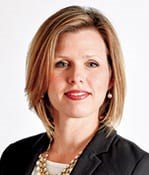Councillor Diana Huson moderates first Seat at the Table panel discussion
Women, and especially those of minority groups, are significantly under-represented on Niagara Regional Council. Seven of the 32 councillors are female, and only two of Niagara’s 12 municipalities have female mayors.
The municipality’s Seat at the Table program aims to change that by offering virtual workshops focused on helping women become better informed about running for local government, addressing barriers that they might face, and providing mentorship and inspiration to include their voices in local politics.
Cassie Ogunniyi, the Region’s manager of diversity, equity, inclusion and Indigenous relations, is program lead.
The first online session, which ran Thursday April 7, was entitled Municipal Government 101: Inspiration, Insight and Information. The evening’s keynote speaker was Velma Morgan, a teacher and advocate for gender and cultural diversity in politics, who orchestrated the first Black community provincial leaders’ debate and Black Women’s Political Summit.

A panel discussion, moderated by Pelham Regional Councillor and Chair of the Women's Advisory Committee, Diana Huson, featured former Wainfleet mayor and current Niagara Parks Commission Chair April Jeffs, Brampton Councillor Rowena Santos, and Liz Hay of Niagara Region’s accessibility advisory committee and its diversity, equity and inclusion advisory committee.
Panels members spoke on such issues as the importance of mentorship, developing a thick skin in the political arena, dealing with critics and supporters, and the intimidation of public speaking. “Representation matters” was a message from Hay to encourage minorities to participate in the political process.
Santos’ advice: “Be your unapologetic, authentic self.”
Future sessions include such themes as getting organized to run; working with other levels of government, policy and planning; managing public scrutiny, harassment, addressing bias and discrimination; council procedures for elected women; mock council meeting for elected women; and supporting female municipal leaders.
The initiative is funded by Women and Gender Equality Canada, in partnership with the Federation of Canadian Municipalities and a host of local organizations, including the Greater Niagara Chamber of Commerce, the City of St. Catharines, YWCA, Niagara Region’s Women's Advisory Committee, and others.
“There are pre-election and a post-election components to the whole program, and both include a workshop series and a mentorship opportunity,” Huson told the Voice. “The Pre-election sessions provide information about contributing to political dialogue and decision making, while the post-election workshops are more about bringing newly-elected women up to speed, and pairing them with a mentor who can help them become effective in their first year.”
Huson said that the sooner a political neophyte learns how to navigate the system, the sooner they will able to achieve outcomes and take action on some of the issues that they were passionate about in the first place.
I realized that the negative side of politics gets a lot of attention, but there are a lot of positive experiences as well
“There will always be those that will want to skew things into a negative light,” said Huson. “But there are also a lot of people out there who are very receptive to what you're saying, and are supportive and encouraging of your participation. I realized that the negative side of politics gets a lot of attention, but there are a lot of positive experiences as well.”
She stressed the importance of being receptive to feedback and listening to contrary views.
“Those are opportunities for learning,” said Huson. “You may have landed on a certain issue, having done your due diligence and having read reports, but perhaps you don't appreciate how it actually affects people. Listening helps inform your decision making, and sometimes that changes your mind.”
Echoing Santos’ comments, Huson added that “communicating while being true to yourself, and being authentic, is a more effective way of connecting with residents.”
There are a lot of policies made at the municipal level that affect women more significantly than men, said Huson.
“Take transportation. Niagara is moving to a regional transit service, and we know that women rely more on transit than men, and they also have different needs with respect to transit. Another example is the Region's responsibility for senior citizen services. Our population of seniors over 80 in Niagara is about 70 percent female, because women tend to live longer than men.”
From the perspective of Regional government operating as a business, Huson underscored that, “We need to ask who our clients are, and who do we need to target in terms of our messaging and our services. We need to recognize some of our services and programming do have a gendered consideration.”
In a press release, Regional Chair Jim Bradley said that, “Having diverse individuals elected to Regional Council is exceedingly important, as it ensures that we are making better decisions that more accurately represent the make-up of our community. I look forward to seeing the benefits of the Seat at the Table program in Niagara, and I am hopeful that it will encourage more women and gender diverse residents to consider running for municipal office later this year.”


